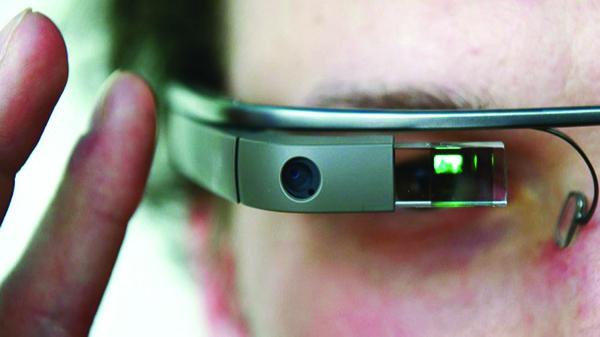Private Eyes

Companies like Facebook and Google get rich by harvesting our privacy. When you use their services, they sell information relating to how you use them. Coming soon, Google Glass is a computer built into a pair of frames with a semi-transparent peripheral screen. Among other things, Glass can take photos and videos with its integrated camera. That pushes the privacy question right into your face—literally. For example, while having coffee with Glass-wearing Glenda, would you feel comfortable if she was taking pictures of you and posting them to her Facebook page? What if she did it without telling you?
Or how about this? Imagine millions of drivers wearing Glasses, taking pictures of you and other drivers, then uploading them to a system that analyzes them and posts real-time information on traffic conditions. Sounds crazy? Maybe not. INRIX offers a Glass crowdsourcing app to do just that. An aside: Mercedes-Benz is working with Google to integrate Google Glass with their vehicle navigation system. Glass guides you as you drive, then continues to guide you after you park and proceed on foot. Next up: Google Glass and car audio.
Now let’s consider our home theaters. It is well known that companies such as Apple, Netflix, Time Warner, Verizon, and TiVo actively monitor our viewing activities, collecting information such as our channel selection, volume muting, etc. Congratulations. Your couch time is creating big revenues for them.
The brave new world of Google Glass will open the door to countless new privacy-challenging apps. For example, how about a Glass app that lets you take snapshots of TV scenes that you particularly like? The photos are aggregated and used to create detailed demographic reports. In real time, broadcasters can determine viewers’ likes. The huge number of samples creates data that is far more precise than any focus group could provide. Along the same lines, politicians would certainly welcome feedback on their ads and their performance during debates.
Or how about an app, in return for some small perk, that listens only for laughter? It activates while you watch sitcoms and triggers when you chuckle at a joke. Broadcasters gain the same advantage that a standup comic has with a live audience and can determine which jokes work and which ones fall flat. The data goes immediately to the show’s writers.
Pushing the envelope even further, how about a service that, in return for your cooperation, streams movies for free? As a movie unfolds, the system uses a camera to track your eyeball movements. When a pretty woman appears, do your eyes linger there? During a violent scene, do you look away? During the mushy romantic parts, do you pick up your tablet and start surfing? How often do you blink? When do your drooping eyelids show you are drowsy? And when do you get up, leaving the TV playing to an empty room? Movie studios could use this data to develop future projects, refine their marketing, maybe even negotiate actors’ salaries, and sell the data to heaven knows who.
The takeaway is this: Our willingness to trade privacy for perks is challenging our ethical norms, and revolutionizing social interaction and just about everything else in our daily lives. Imperceptibly, Big Data is gaining ownership of our souls. It is logical to assume that similar pressures will be applied to us in our home theaters. The question is, how much privacy—the privacy of your home theater—will you be willing to relinquish?
























































